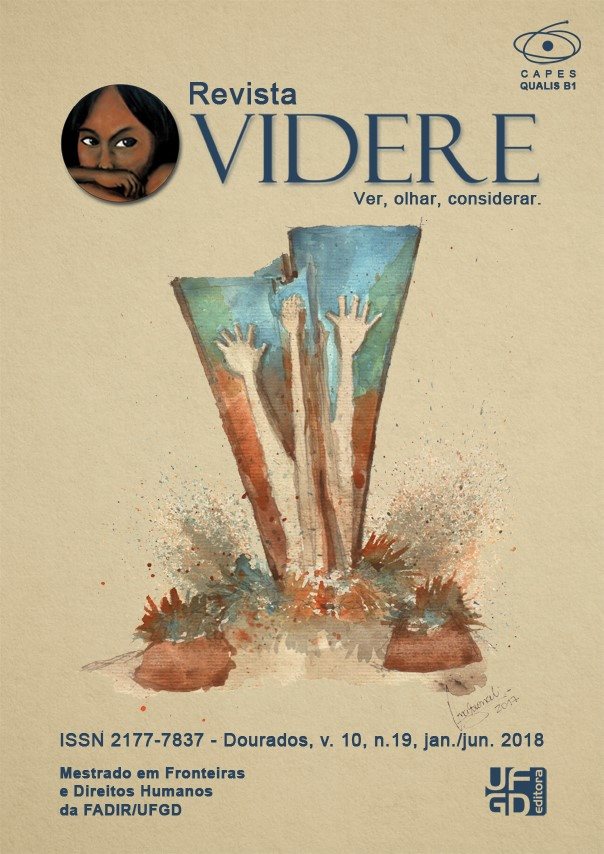Povos da mata na terra sem mato
DOI:
https://doi.org/10.30612/videre.v10i19.6250Keywords:
Terra indígena. Questões fundiárias. Kaiowá-guarani.Abstract
O presente trabalho faz uma revisão de literatura sobre a questão territorial dos kaiowá-guarani do sul de Mato Grosso do Sul, tratando de aspectos gerais da sua etnohistória, como ocupação tradicional e transformações ao longo de quase um século; da sua organização político-social; de conceitos/categorias importantes como te´yi, tekoha e tekoha guasu; de processos de luta; da classificação das terras indígenas e de aspectos fundiários. Estas reflexões foram construídas de modo a se pensar alguns caminhos que levaram a destruição das matas e a outros problemas ambientais verificados em trabalho de campo realizado em 2014, em três terras indígenas, que são: Jatayvary, Sucurui´y e Te´ýikue.Downloads
Downloads
Published
How to Cite
Issue
Section
License
Authors must accept the publication rules when submitting the journal, as well as agree to the following terms:
(a) The Editorial Board reserves the right to make changes to the Portuguese language in the originals to maintain the cultured standard of the language, while respecting the style of the authors.
(b) Authors retain the copyright and grant the journal the right to first publication, with the work simultaneously licensed under the Attribution-NonCommercial-ShareAlike 3.0 Brazil (CC BY-NC-SA 3.0 BR) that allows: Share - copy and redistribute the material in any medium or format and Adapt - remix, transform, and create from the material. CC BY-NC-SA 3.0 BR considers the following terms:
- Attribution - You must give the appropriate credit, provide a link to the license and indicate whether changes have been made. You must do so under any reasonable circumstances, but in no way that would suggest that the licensor supports you or your use.
- NonCommercial - You may not use the material for commercial purposes.
- Sharing - If you remix, transform, or create from material, you must distribute your contributions under the same license as the original.
- No additional restrictions - You may not apply legal terms or technological measures that legally restrict others from doing anything that the license permits.
(c) After publication, authors are allowed and encouraged to publish and distribute their work online - in institutional repositories, personal page, social network or other scientific dissemination sites, as long as the publication is not for commercial purposes.



















